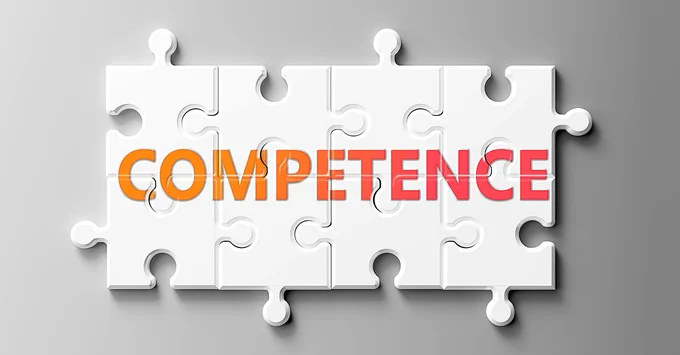
The focus of many of these blogs has been to explore the essential competencies of mentoring and supervision. However, it’s also important to understand where we are not competent.
Mentoring and supervision can help people balance their personal life and their work, help develop new abilities and long-term skills, build resilience in a client to help sustain their livelihood. Ideally, we help a client become the very best version of themselves.
But we can’t do everything.
We must know our boundaries as a person and a professional. Offering insight without true knowledge of the topic we are discussing can damage the client. We should always want what is best for them, even if it means we recommend terminating our professional relationship with our client so they can find a professional who is the right fit for their needs.
Know Your Competencies
We can begin by knowing what we are good at. What competencies are we bringing to the table? For example, I have experience in ministry, leadership and small business. I can easily mentor in these lanes/professions. I have clients in business, education, politics and academics. While I do not have personal experience in these jobs’ technical aspects, I do have competencies that can help people’s well-being.
Know Your Limits
There is a boundary here that we don’t want to cross. While our competencies can help many people in many different ways, we don’t want to step out of our professional lane. For example, if I am mentoring a lawyer, I would never give them my personal opinion on a legal case they are working on. I could offer insight into their interpersonal relationships within the office or ask thought-provoking questions to encourage them to consider their goals for the future, but I have no legal expertise. If a person seeks your help in a work matter, you may need to suggest they find a different kind of professional mentor or supervisor who focuses on the particular subject they are struggling with.
Mentors and supervisors may also have varying degrees of comfort when it comes to working with clients in different disciplines. It will also depend on what you and your client agree your role is. There can be some blurrier boundaries regarding more personal matters. If a client is dealing with the trauma of childhood abuse, I may be able to offer some compassionate words and some helpful insight, but I would also encourage them to seek a counselor, therapist or psychologist who specializes in childhood trauma. The same would go for a client suffering from severe insomnia. I can recommend meditation or physical activity to help them sleep, but what they most likely need is a medical professional.
Know That You’re Part of a Team
When I was dealing with burnout, I didn’t rely on the wisdom of a single professional. I had a whole team of people helping me: my primary care physician for my physical symptoms, a psychiatrist to help with mental symptoms, friends to support me emotionally, a mentor to help me spiritually, colleagues and coworkers who carried my workload when I took my leave, and my family who supported and loved me through it all. It took the patience, the expertise and the care of many people to help me through my recovery process.
When we work with a client, we need to recognize that we are a part of a bigger team, and if we feel we are stepping past our boundaries, we should stop and recommend that our client seek the aid of someone who has the experience and skill to handle their problem effectively. There is no shame in admitting we are not the best person for this particular issue, and when we truly care about a client, we should be eager to see them succeed, even if we are not part of giving them that particular solution.
There are times when we may even need to step away entirely and recommend our client seeks a different mentor or supervisor. For more about making referrals, look for next week’s blog!
What is next? Consider assessing your competencies. Take the Mentor Q assessment to assess essential mentoring and professional supervision skills. If you want to grow your competencies, register your interest in the essentials cohort starting late January 2025.
Continue reading with these articles…
Recent Posts
Categories
- Coaching
- Emotional Health
- Empowering Transformative Action
- Flourish
- Gauges
- Grief
- Grief
- Healthy Emotional Intelligence
- Healthy Lifestyle
- Mature Disciple: foundational competency for mentoring
- Mentoring Excellence
- Professional Supervision
- Reduced Risk
- Replenish
- Resources
- Seasoned Christian Leadership
- Sustainable Life
- Thriving Relationships
- Uncategorized
- Videos
- Vital Spirituality
- Well-Being
- Well-Being Mentoring



